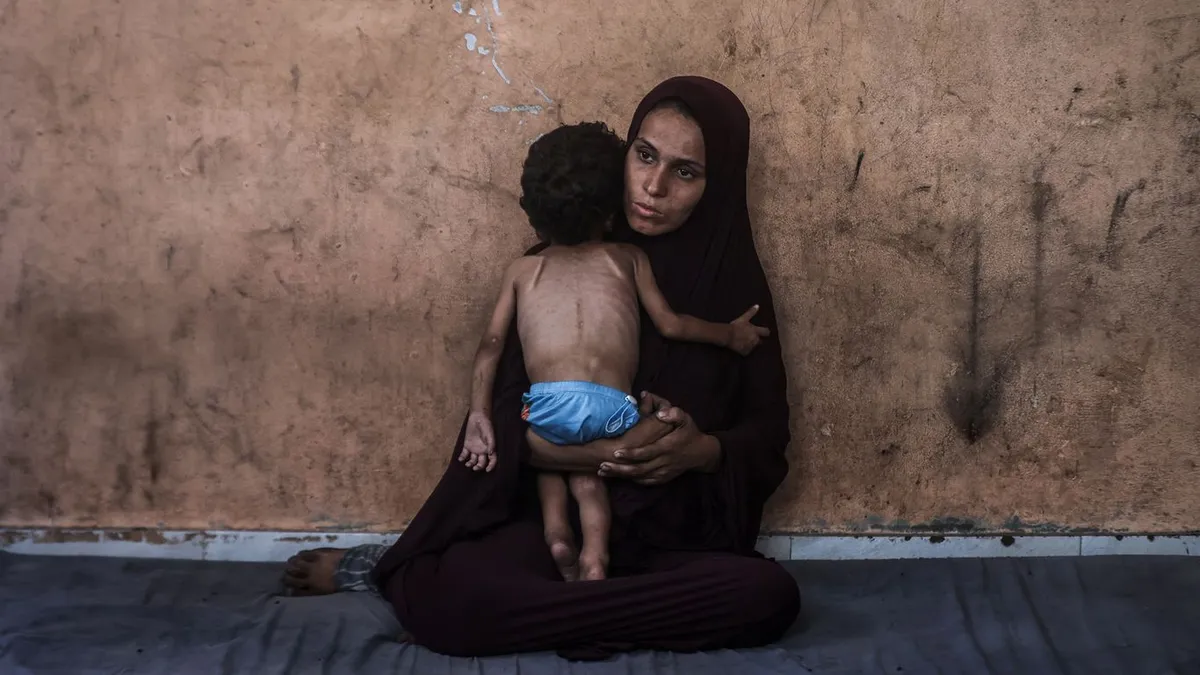
On Monday, former President Donald Trump expressed his disagreement with Israeli Prime Minister Benjamin Netanyahu's assertion that there is no starvation occurring in Gaza. When questioned about his agreement with Netanyahu's claim, Trump stated, "Based on television, I would say not particularly because those children look very hungry." He later emphasized, "There is real starvation in Gaza — you can't fake that."
The situation in Gaza has evolved into an unprecedented humanitarian crisis, exacerbated by the breakdown of ceasefire talks last week. Both Trump and his senior advisors have acknowledged, both in private and public forums, that their strategy regarding Gaza has not yielded the desired results. However, they have yet to determine whether or how to amend their approach moving forward.
During a meeting with U.K. Prime Minister Keir Starmer in Scotland, Trump remarked, "Hamas don't want to give the hostages. I told Bibi that he will have to now maybe do it in a different way." He indicated that while a ceasefire is a possibility, it must be executed with caution, stating, "you have to end it." This comment aligns with Trump's previous suggestion that Israel may need to intensify its military efforts to eliminate Hamas, a stance that contrasts sharply with the perspectives of Starmer and other Western leaders who are urging Israel to cease hostilities.
As of Sunday, the Israel Defense Forces (IDF) have initiated daily humanitarian pauses in combat operations across various population centers in the Gaza Strip. In a significant development, the IDF conducted air drops of food in Gaza for the first time on Sunday. Additionally, both the United Arab Emirates (UAE) and Jordan have also carried out air drops of food supplies on Sunday and Monday.
Despite these humanitarian efforts, Netanyahu continues to assert that there is no starvation in Gaza. However, reports from the United Nations and other humanitarian agencies indicate a troubling rise in deaths resulting from starvation-related causes in recent weeks.
In the coming week, two senior aides from Netanyahu's administration will travel to the U.S. to hold critical discussions with White House officials regarding both Iran and Gaza. This delegation, which includes Minister for Strategic Affairs Ron Dermer and National Security Adviser Tzachi Hanegbi, arrives amid ongoing stalemates in Gaza negotiations, as well as the need for coordinated next steps between Israel and the U.S. concerning Iran.
During a separate meeting with European Commission President Ursula von der Leyen, Trump remarked on his previous discussions with Netanyahu about Iran's aggressive rhetoric. He stated, "I think Iran has been very nasty with their words. They got the hell knocked out of them, and I don't think they know it." Trump reiterated the importance of preventing Iran from acquiring nuclear weapons, criticizing their insistence on enriching uranium on Iranian soil, and labeled such statements as "stupid." He concluded with a firm stance: "So we're not going to allow that to happen."